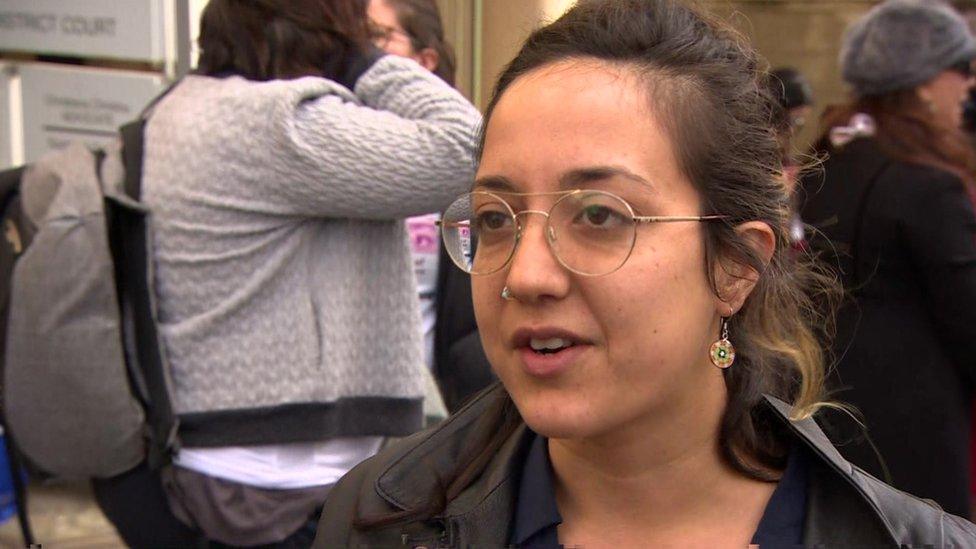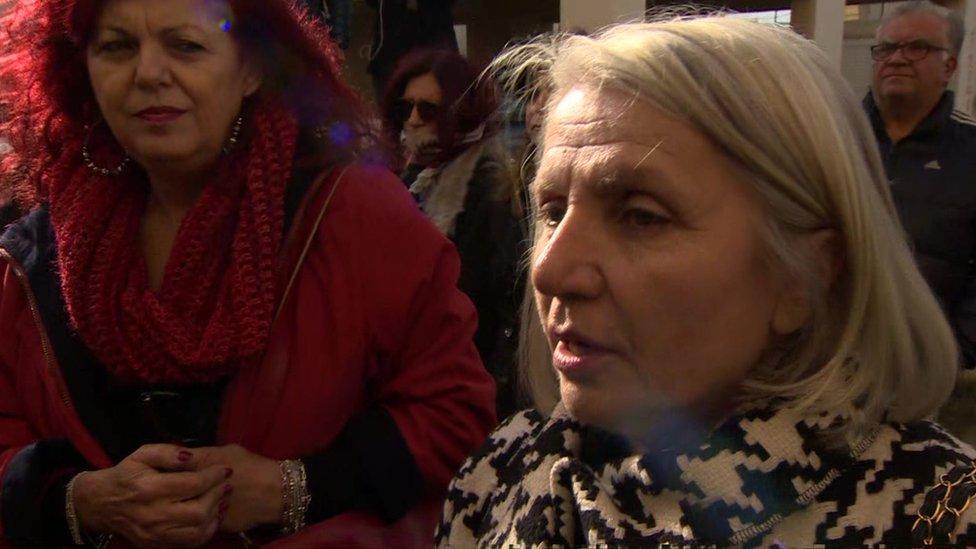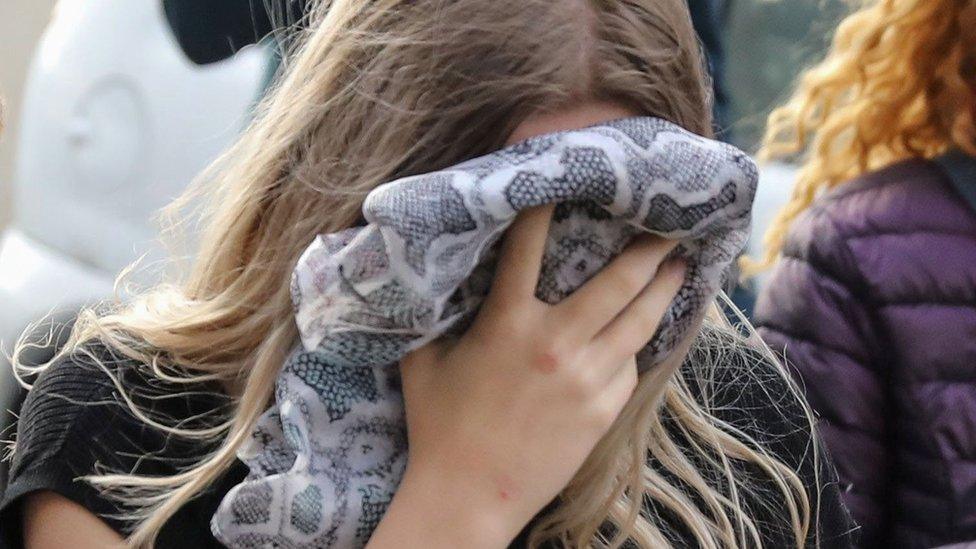Cyprus false rape claim trial: The women rallying for British teenager
- Published
Protesters say they believe the British woman's rape claim
"We believe you", "we are on your side", "you are a victim of a flawed system".
These were just a few of many banners, placards and posters waved by a crowd of women's rights activists, who stood and chanted messages of solidarity for a British teenager in Paralimni, Cyprus.
The 19-year-old, who was found guilty of lying about being raped in Ayia Napa by a group of young Israelis, hid her face with a scarf and was visibly shaking as she stood for a moment in front of the group, before entering court.
By her side was her mother, along with a British documentary maker, who has accompanied the family at each of the court hearings.
There has been international criticism regarding the fairness of the trial, and the controversial case has united women's rights groups and activists from both Cyprus and Israel.
Noa Borstein, a journalist and activist from Israel, tells me that she travelled "with 60 women on two planes and two buses from Tel Aviv" to be here.
"There is something fishy here", she says. "This story is too familiar for any one of us. We hear it a lot and know what it's like to be seen to be 'unbelievable' with our stories."

Israeli journalist Noa Borstein says the truth still hasn't come out
I asked her about news coverage of the case in Israel - and the 12 Israeli youths who were released without charge.
"For me, when we watch the mainstream media, we hear a patriarchal narrative, not believing women.
"Israeli papers blame the girls. And there's a big society debate - even in my own family - you can see the men standing beside the boys, but the women think that there's more here than they say it is, it's not a lie."
Government 'not used to questions'
The criticism from some Cypriot protesters here is not just the alleged flaws in this case, but of the island's entire judicial system.
Among the activists is Zelia Gregoriou, an associate professor in gender studies at the university of Cyprus.
"People shouldn't trust the government. Governments should always be in question and the government in Cyprus isn't used to that.
"They are not used to being questioned because they adopt a very patriarchal, pastoral approach to politics - 'we know best, we do it for you, don't bother us, don't question us'.
"I think this is the moment for the country, we've come together to recover the meaning of citizenship."
Argentoula Ioannou is amongst the most vocal of protesters, shouting "I am with you" and "we believe you". She's part of the newly-formed Network Against Violence Against Women, that helped organise the protests.
She says: "The verdict is a result of the whole system of deficiencies and bad handling by police, who led in the conviction. They haven't protected, they haven't believed, and they let the Israelis leave the country without doing their job properly."

Cyprus MP Skevi Koukouma says there are a lot of questions to be answered over the whole process
Police officials have denied claims that they acted improperly in this case, as well as claims made by the teenager's family that they "bullied" her into recanting her statement.
There were also supportive voices in the crowd for the police and judiciary.
Skevi Koukouma, a Cypriot MP for the nearby town of Famagusta, says she turned up to defend her country's legal system, which she said was facing "huge reputational damage, based on the perception of this case abroad".
- Published8 January 2020
